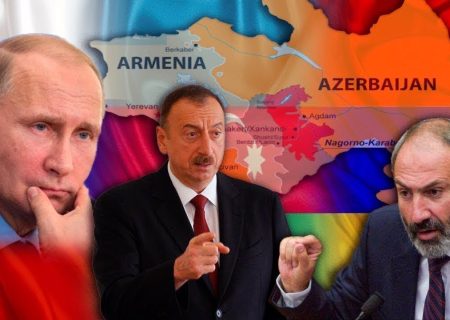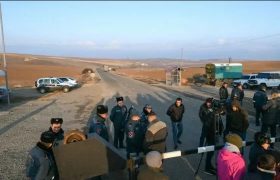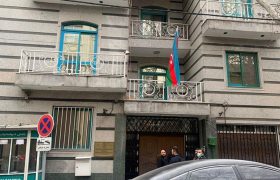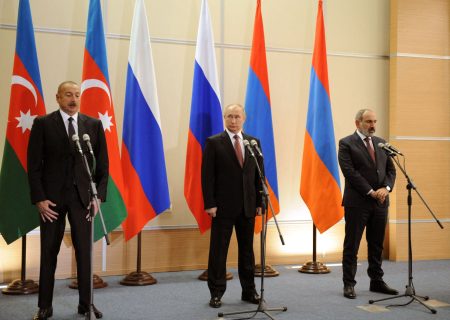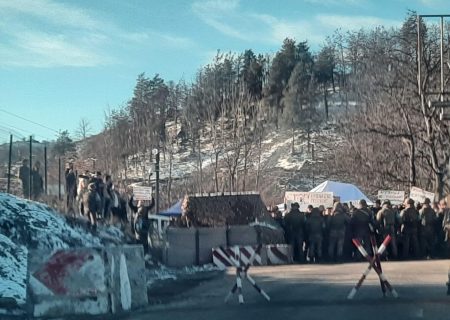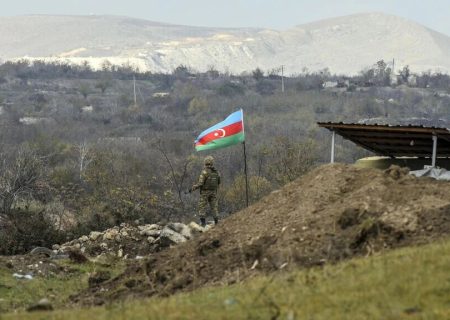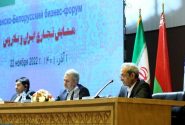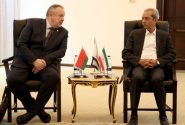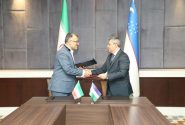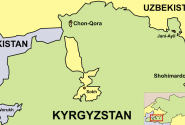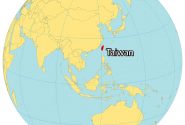News
 The Historical Evolution of Tourism in Modern Turkey: From the Pre-Planned Period to the Planned Period
The Historical Evolution of Tourism in Modern Turkey: From the Pre-Planned Period to the Planned Period
 International Conference on Artificial Intelligence and New Diplomacies
International Conference on Artificial Intelligence and New Diplomacies
 Message of Putin’s trip to UAE, Saudi Arabia: Moscow is not isolated
Message of Putin’s trip to UAE, Saudi Arabia: Moscow is not isolated
 Russian professor proposes free trade regime and common technological space with Iran
Russian professor proposes free trade regime and common technological space with Iran
 Why has Russia questionably preferred to remain silent regarding revival of Azerbaijan’s sovereignty in qarabag?
Why has Russia questionably preferred to remain silent regarding revival of Azerbaijan’s sovereignty in qarabag?
Caucasus
Why has Russia questionably preferred to remain silent regarding revival of Azerbaijan’s sovereignty in qarabag?
the consequences of Ukraine war mitigating Russian monopolistic and hegemonic positions in Caucasus have created the vacuums in the region which are being filled by the new extra regional countries including Turkey and China.
An Analysis of Armenia Not Welcoming Tripartite Negotiations
Strategic Council Online – Interview: An expert on Caucasus affairs said: Armenia is angry with Russia over its failure to give a quick and decisive response regarding the lifting of the blockage of the Lachin Corridor, and by not welcoming tripartite negotiations, it intends to show its dissatisfaction, but this action will not help to improve the situation and enables the Republic of Azerbaijan to find the possibility for more movement.
The causes and consequences of blocking the Lachin corridor
Strategic Council Online—Interview: Emphasizing that the Republic of Azerbaijan and Armenia should respect each other’s territorial integrity and observe international standards, an expert on international issues said that what happened with the blocking of Lachin corridor is against the standards of international law. The Republic of Azerbaijan should be demanded to cancel the restrictions and at the same time clarify the ambiguities of the Moscow Agreement, which was signed with the presence of Russia and between Armenia and the Republic of Azerbaijan, otherwise there is always the possibility of conflicts and disputes.
Strategic consequences of attempting unacceptable border changes in the South Caucasus
Strategic Council Online–Opinion: Baku claims based on paragraph 9 of the tripartite agreement that was clinched after the second Karabakh war on November 10, 2020, the right was given to the government of Baku to build through the territory of Armenia an exclusive “corridor” under Azerbaijan’s sovereignty to Nakhchivan. Hamid Khoshayand—Expert of regional issues
Iran and Eurasian Economic Union Negotiations: Upgrading EAEU-Iran Preferential Trade Agreement into a Free Trade Agreement
The Treaty on the Eurasian Economic Union (EAEU) was signed on 29 May 2014 by the leaders of Belarus, Kazakhstan, and Russia, and came into force on 1 January 2015. Treaties for Armenia's and Kyrgyzstan's accession to the EAEU were signed on 9 October and 23 December 2014, respectively.
OBJECTIVES, CONSEQUENCES OF SIGNING MOSCOW-BAKU DECLARATION ON ALLIED INTERACTION
Interview: An expert on international law stressed: Baku is concerned about the possibility of Russia recognizing the independence of the Karabakh region in coming years, and according to the Declaration on Allied Interaction, it gives guarantees to Russia so that Moscow will not implement the formula of supporting separatism in Karabakh and even in the Lezgian regions of northern Azerbaijan.

